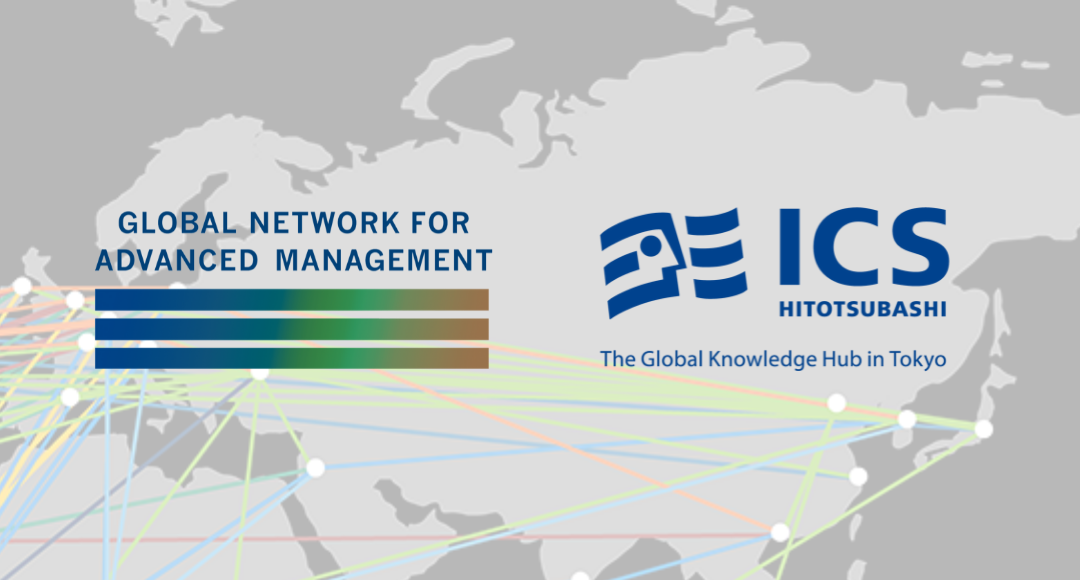In these fast-changing times, staying abreast of new developments and making use of exciting new possibilities for international collaboration has become an essential part of many professional jobs. Going back to school after a few years of working full-time can be a great way to quickly gain a wealth of the newest insights and understand their real-world implications in a way that you couldn’t yet during your undergrad studies. A global MBA in Japan could be an excellent choice, depending on your career goals. Global Network Courses, in which member schools connect to enable students to practice working globally, are more relevant than ever in today’s changing world. Let’s look at why doing an MBA in Japan is a good idea and five examples of unique Global Network Courses you could take at Hitotsubashi ICS.
Why an MBA in Japan?
One good reason to do an MBA is the opportunity you will get to build a new global professional network. Activities such as internships, company visits, and international exchange are great tools for building a network that can last for a whole career. Additionally, students can also leverage Hitotsubashi ICS’s Career Services office and faculty networks, many of whom are seasoned professionals with a wealth of international work experience.
Another strong motivation for enrolling in an MBA program is the access you get to exciting and current course material. Online communication and collaboration have quickly become a prominent part of work-life for many over the last two years, and these developments are only set to accelerate. A global MBA where connecting and collaborating with professionals from all over the world is a focal point will give you a solid foundation for furthering your career in the future workplace. The Global Network Courses that you get access to if you are a student at Hitotsubashi ICS are a prime example of this focus on global communication and collaboration.
What Are Small Network Online Courses?
After enrolling in an MBA program at Hitotsubashi ICS, you will access the Global Network for Advanced Management. Member schools are literally located across the globe, with a presence on six continents. Small Network Online Courses (SNOC) are offered for all network MBA students. So, for example, to satisfy some of your elective credit requirements at Hitotsubashi ICS, you could take a SNOC course at Yale SOM, Oxford Säid, or IE.
What is unique about SNOC is that they are not massive open online courses where everyone can simply enroll. First, network students apply to register; then they are screened and selected. Groups are kept small to form teams of MBAs that enhance collaboration and maximize what each student gains from participation in terms of skills and knowledge.
In these times of rapid development of distance collaboration, SNOCs are more relevant than ever. SNOC doesn’t only create an unprecedented increase in options for electives to choose from; like this year, there are over 60 available SNOCs. Moreover, with all the recent experience with interactive virtual education, the SNOC has become even smoother and more manageable. Moreover, as workplaces are only set to become more reliant on online and global communication, getting used to this way of collaborating and communicating is inevitable and indispensable. With SNOC, students will log in for lectures, discussions, and collaborative team projects, practicing these critical online skills for the modern workplace.
5 Global Network Courses at Hitotsubashi ICS
To give you a bit of an idea of what type of courses you can expect, here is a selection of 5 Global Network Courses from the catalog:
- Mastering Influence: The Science of Getting Things Done Through Others, at National University of Singapore Business School: students explore the effects and possible pitfalls of influence, strategies to defend themselves against manipulation, and both interpersonal and organizational uses of influence.
- Corporate Innovation and Entrepreneurship at EGADE Business School: students will learn how to implement and use start-up style entrepreneurial and innovative thinking in large companies.
- Natural Capital Risks and Opportunities in Global Resource Systems at Yale SOM: students learn about the risks and opportunities of natural resource constraints and megatrends they cause.
- Managing Cybersecurity at Asian Institution of Management: students learn how to allocate scarce security resources to ensure information security.
- Doing Business in China at Fudan University School of Management: students are introduced to various aspects of China’s business environment, including modernization policies, the growing technology sector, and China’s innovative business economy’s potential for internationalization.

So, as you can see, while you will be stationed in Japan during your studies at Hitotsubashi ICS, you will have access to faculty and students from outstanding universities from all over the world.
No matter what your interests are, chances are, you will find at least one course touching on the topic of your interest. Also, you can dive into these topics with a group of like-minded MBAs, or you might even discover a whole new area that you may not have even heard about before.














